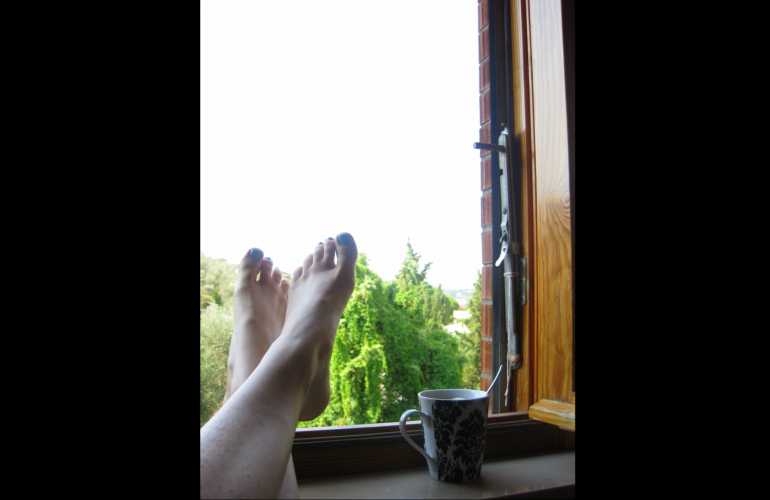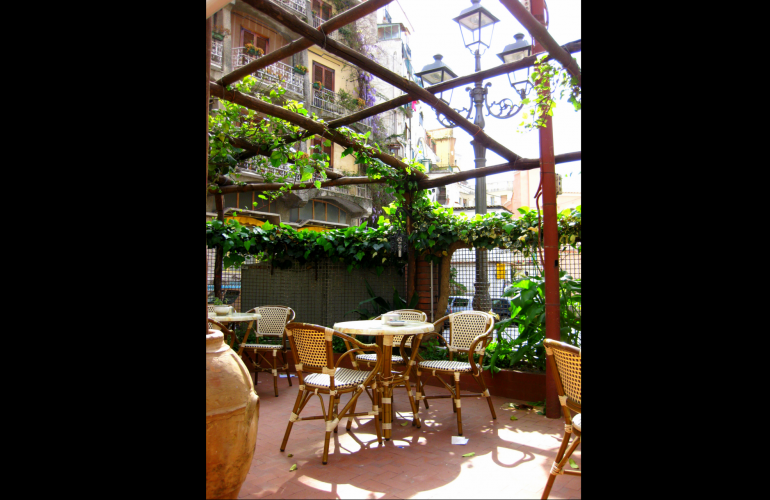When we enrolled Natalie in first grade last September, we opted out of religion class. Even though we share some fundamental beliefs with the Roman Catholic Church, we weren’t comfortable with her learning doctrine as an academic subject. Frankly, I find it incredibly dangerous when any religion is painted in the same black and white lines as grammar or algebra—right versus wrong, subject to a grade—and I’d like to think that we would have opted out of the class even if it had taught our exact beliefs. (Sunday School is a whole ‘nother ball of wax, but it’s easier to discuss what the girls learn there without having to discredit the entire academic system.)
I was at peace with our decision until we picked Natalie up after her first Friday at school. She was as cheerful as ever, happily recounting how she had gotten to go out in the hallway during religion hour and watch the other teachers have their coffee. I was… less cheerful. Bit by bit, Dan and I uncovered that Natalie was the only child in the entire elementary school in the entire course of its history to opt out of religion class, and the teachers didn’t know what to do with her other than send her out of the room. My heart thudded straight down onto our granite tiles.
I know all too well what it is to be the odd child out… the only kid at the grocery mid-morning, the only girl in our homeschool group wearing a jumper, the only teen not pledging for True Love Waits. I remember the icy sense of exposure and the sharp loneliness, and I’ve never, ever, evereverever wanted to subject my daughters to them. However, that’s exactly what I found myself doing that Friday, wielding religious principles that banished my six-year-old to the hallway.
I hurt all over for her, but Natalie was clearly not bothered by skipping class, so Dan and I didn’t push the issue. Instead, we talked to the teachers and arranged for her to join the other first-grade class while hers was doing religion. Some of the other parents overheard us, and the next Friday, Natalie was joined by a little boy. For all the countercultural drama we were putting her through, at least she was no longer alone.
The subject of religion class hasn’t really come up in the months since, but this morning, the little boy’s mother caught up with me after school drop-off. “Guess what I found!” she chirped, taking my arm as if this were the seventy millionth instead of the very first time we’d talked. (I immediately wanted to kick myself for not introducing myself sooner. Or, you know, at all.) “Looking through my son’s workbook, I found a little note he had written during religion hour: ‘Dear Natalie, you are beautiful!’” We laughed together, and I felt a little like crying and a little like skipping all at once. She asked about our church (evangelical), and I asked about theirs (Muslim), and it didn’t matter a single bit that some members of both our religions dedicate energy to hating each other. Our faiths didn’t affect our ability to be friends.
And yes, I know I’m realizing things all the time on this blog that are probably common sense to most people and it’s got to be irritating by now, but I realized in those three minutes of conversation that this is the lesson we’re teaching Natalie with our lives here. She and her classmates might not attend the same church, but our families’ homes are open to each other. We share meals and swap recipes and give each other’s children rides, and if I hadn’t been bracing myself so hard against alienation, I might have noticed sooner that there was no need. Our differences don’t prevent us from loving each other well. Our separate journeys with God don’t make us enemies. That this is even possible makes my soul giddy with hope, and I find myself grateful in a way I couldn’t have imagined last September that my daughter gets a front-row seat.





